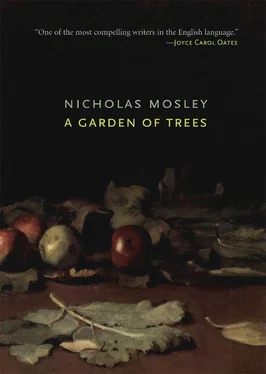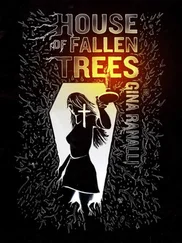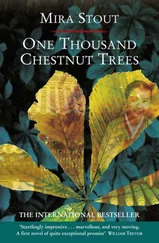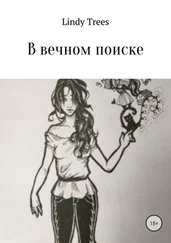If you wish to have the sickness you say — That is a moment I shall never forget, the moment when the curtain descended and the lights went up and there were no tears in any eyes except my own. Then you are alone, very alone, and for a while you stand on the corner of a street and the evening comes down on you like a descent of birds and the cries of starlings are above your head. You watch the people and you do not hear them and the silence is a mantle to deceive your eyes. Then they cannot bear it. Agreement is that there shall be no silence and you shall never be alone and the mouths and the glances are above you this time like vultures and they get very close to you because you are dead.
When you are alone you are dead and the vultures pick at you. The mantle is torn off you and the noise comes in in waves, the insect clatter the machinery of tongues the vibrant voices that have to forget that have to make you forget that have to take you with them so that you will never remember. As I moved down the street I said that I should never be dead, that I should be alive with Annabelle or alive beneath the vultures but that I should never be dead. The machinery mocked me. But I knew that if I was to remember this was what it would mean, to be for ever with her who could know and not deceive me, which was a decision I could not make and which had nothing to do with me, or to be for ever with the vultures that would wait with naked necks in the smell of rottenness that went on and was endless. At the end of this day with the blinds coming down across what I had done I thought I could try it. I went not alone because I loved and have loved and the golden evening was inviolate about. Whatever happened I had done one thing, and I went to Annabelle so that at least I could remember.
12
“We are coming to the end of something,” I said.
“Are we?”
“What are you going to do?”
“I am going to cook supper,” she said. She put down the tray that she was carrying and went back into the kitchen.
“You are so serious,” I said.
I sat on the edge of the table and waited for her. She had been out when I had arrived, and it was late. Peter had not come in. When I was alone with her there was no awkwardness now, but just the suggestion that what we said meant more than the words we used. “Marius stayed with me last night,” I said.
“I thought he must have done.”
“We were tired. Time has gone so quickly that it is difficult to remember what has happened and what has not.”
“We got back very late, I wondered where you were.”
“I waited by the statue. I think time will go more slowly now. When did you first meet Marius?”
“Just before I met you, a year ago.”
“And has that time gone quickly? I did not really meet you then.”
“I saw you, I remember I was nervous and there was something in your eyes.”
“Marius and I went to the hospital to-day. I think his wife will be better now, she is happier.”
“Have you done that?”
“I don’t know,” I said. Annabelle was carrying knives and forks going in and out of the room all the time so that the talk was disjointed.
“I remember you in the pub, we talked about musical-boxes,” she said.
“Do you remember Marius saying that only individuals can begin things?”
“Is that what you mean by coming to the end of something?”
“Yes,” I said. “For two weeks we have been together. . ”
“For a year,” she said.
“But I. . ”
“We often thought about you, Marius said it was like being in a monastery, one is much closer to people then.”
“Has Marius been in a monastery?”
“No,” she said.
She was out of the room again and I wandered over to the piano where there was a large photograph of Peter and Annabelle as children with their father and their mother. Peter looked fat and portentous and Annabelle was sitting on the ground peering cautiously through her curls with her small frightened face. “I should have liked to have known you as children,” I said.
“You have,” she said.
“Yes.” Her father and mother looked unreal as people of that generation do in photographs. He was a small man sitting bolt upright with his hands on his knees and she was draped indistinctly across the back of the chair. I knew it was not like them. “And your father and mother,” I said.
“You know,” she said, “we may have to go back to them soon.”
“May you?” I said. This news did not hurt me as I thought all the time it should have done, because I knew there was something ending and the details were only reflections of the sadness that bathed us like light.
“Peter won’t go back to Oxford,” she said. “He will have to get a job and I suppose my father will get him one.”
“And you?”
“I will go back too.”
“And you will cook suppers for the rest of your life?”
“I suppose so,” she said.
I followed her into the kitchen. She was busy with pots and pans and I squeezed out of her way between a cupboard and the door. Whatever I did not feel, I had to say it.
“I hate this ending of a year,” I said.
“Do you? You see, we are not yet individuals.”
“I don’t want to be an individual.”
“You do, I think you became an individual when you got angry with Marius, and then you have your work to do, haven’t you?”
“I loathe my work,” I said.
“Do you?”
“And now I am not angry with Marius, I am quite under his spell again, I want to go on as we have been going. Have you ever been angry with Marius?”
“Not yet,” she said.
“So you see, it is no good.”
“What is no good?”
“There is something intolerable in this, that we want to go on as we are and we cannot act as individuals.”
“Why cannot you. . ”
“Because I am fond of Marius as well as in love with you,” I said.
She broke some eggs into a bowl and began to whisk them vigorously. “You know,” she said, “you are much more part of the world than Marius is.”
“What do you mean by that?”
“I don’t know. I think you are the thing that endures.”
“Endures!”
“Yes. Marius is transitory, and Peter too in a way.”
“How do you see the future then?”
“I would never say,” she said, “not even to myself.”
She tipped the bowl of eggs into a sauce pan and turned up the gas. “You make me feel like a pair of overalls,” I said.
“Yes,” she said, “you are.”
She was rummaging in a drawer of the cupboard and I could see her laughing to herself. Squeezed behind the door I felt as if I were in a coffin. “You ought to put some milk in those eggs,” I said.
“Never milk with butter.”
“Let me stir the damn things then,” I said.
She went back into the drawing-room and I stirred the eggs lethargically with a wooden spoon.
“I mean that you are the sort of working clothes,” she said. “That is what I mean by overalls.” She was speaking from the passage and I wished I could see her face. “Something that saves the stuff underneath. Without overalls you get terribly worn, and people splash you.”
“Thank you,” I said.
“I am too, in a way. I cook and have things ready and I don’t put milk in buttered eggs, that’s what I do.”
“And do you have children and sow and knit and take dogs for walks in the country?”
“Perhaps. We both have things to do, to keep us going.”
“I hope we get somewhere,” I said.
We took the buttered eggs through to the drawing-room and ate them sitting cross-legged on the floor. I tried to imagine her in ten years time with a pack of dogs on strings. I imagined it easily. “There is not enough salt,” she said.
Читать дальше












